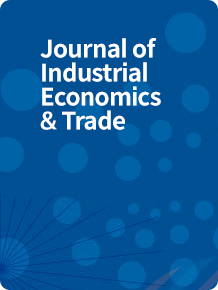Code of Ethics

Ethics
Ethical guidelines and best practices
In the event that the editorial staff of the Journal of Industrial Economics and Trade discovers any infractions, irregularities, or breaches of research ethics in any work submitted or published in JIET, the work in question will be immediately retracted, and the author of said work will be barred from submitting any works to JIET for three years from the date that the infraction was first discovered.
These infractions and irregularities include: falsifying and/or fabricating data, altering existing works, plagiarism, illegitimate attribution or authorship, and redundant submission or publication, also known as self-plagiarism. JIET defines these terms as follows.
- 1) Falsifying and/or fabricating data refers to the act of creating or knowingly citing counterfeit, fraudulent data or research findings.
- 2) Altering existing works refers to the the act of distorting the content or findings of other works by manipulating data, research materials, processes or equipment to produce a desired result, or by arbitrarily modifying or manipulating research data.
- 3) Plagiarism refers to the act of presenting someone else's work or ideas as original without appropriate acknowledgement, or the act of paraphrasing text, concepts or ideas without citation or permission.
- 4) Illegitimate attribution of authorship refers to a failure to correctly attribute and give credit to authors that have made scientific or technical contributions to the work in question. Illegitmate attribution of authorship also refers to "gift" or "ghost" authorship, where in an individual that has not contributed to a work is credited as an author or contributor.
- 5) Redundant submission or publication (self-plagiarism) refers to a failure to correctly cite previous work, the content of which is reused, rephrased or otherwise reappropriated for use in the submission in question, in an attempt to pass off older work as new and or original. It also refers to the act of reusing an exessive amount of material from a previous work, even if correctly cited. The editorial board will have sole discretion as to what infractions of the types above constitute ethical breaches.
Verify KIET Email Address
Please enter the security text below
to prevent email collection
Check KIET employee information
Please check the information of the person in charge.


